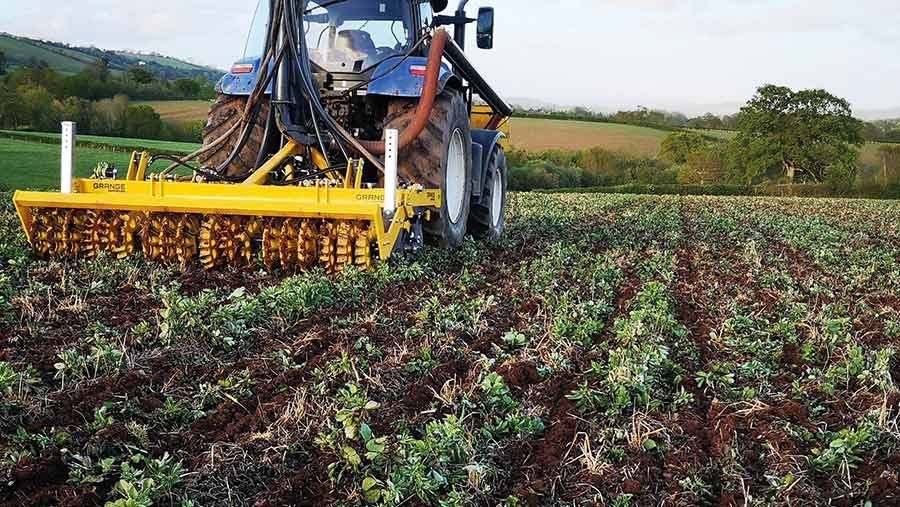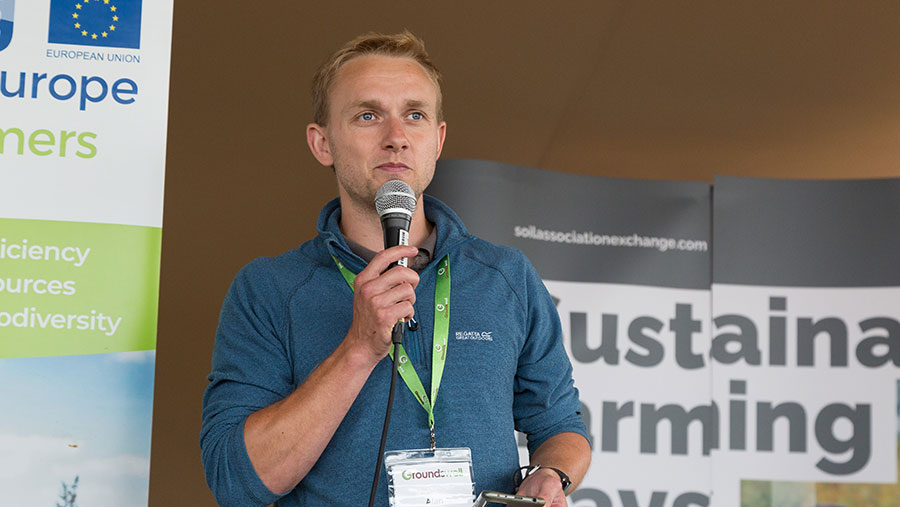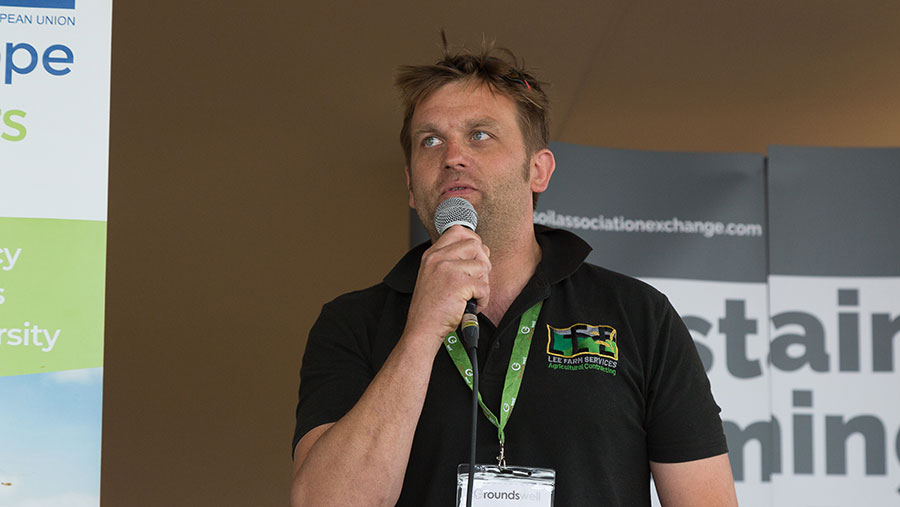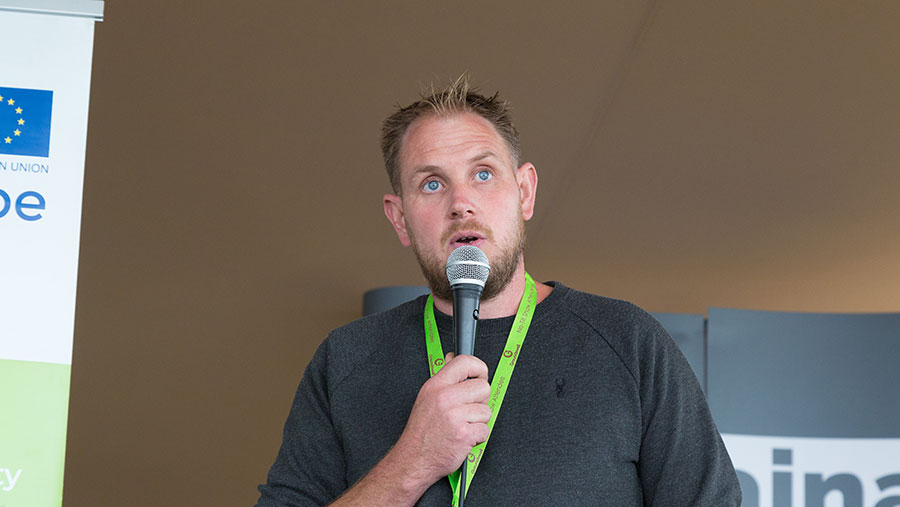Farmer networks will be key for SFI uptake
 © Olivia Cooper
© Olivia Cooper Building confidence via networks of farmers will be crucial to the successful implementation of the Sustainable Farming Incentive (SFI) and rollout of agroecological practices on UK farms.
This is according to Dr Alan Radbourne of the UK Centre for Ecology and Hydrology, which is part of the FABulous Farmers project supporting farmers to reduce reliance on inputs such as chemical fertilisers and pesticides in favour of methods such as the use of herbal leys and agroforestry.
See also: 7 top tips on establishing herbal leys

Dr Alan Radbourne © MAG/Judith Tooth
Whole-system approach
Rather than hoping for instant results, Alan says adopting such new practices should be approached rather like training for a marathon.
The training should be varied, not always far or fast, and it requires cutting out bad habits and commitment of time. In other words, a whole-system approach is needed.
“Changing one thing won’t have an effect on its own, but put together [with other measures], it will. You have to keep going, keep trying, and it’s the same on a farm. It takes time and some sacrifice,” he says, adding the process is helped by engaging in farmer networks.
Soil biology
Devon mixed farmer and project member James Lee runs a herd of suckler cows and a contracting business.
He says his “number one hate is to see red soil running down the road”. It has taken him several years of experimentation to develop a successful system of growing cover crops ahead of maize and using strip tillage.
This approach has reduced the risk of soil erosion and run-off from his maize fields, as well as holding nutrients over the winter and improving soil organic matter.
“We’re getting the soil biology working with what resources we have on the farm,” he adds.

James Lee © Judith Tooth
Rob Atkin has also benefited from taking part in the project.
On his mixed farm in Staffordshire, 350 head of beef cattle graze on 81ha (200 acres) of floodplain pasture.
Home-grown cereals and proteins are used to feed the cattle, which provide muck for his arable crops in return.
Sheep have also been reintroduced to improve soil organic matter levels and control grassweeds.

Rob Atkin © Judith Tooth
Trial and error
“We’ve used sheep to graze winter wheat – some years it has worked; others, not so good,” he says.
“Then we got a bit braver and grazed oilseed rape. We grazed too hard one year and it was a disaster.
“We learned the hard way that you need to have another field ready for the sheep to move onto – the damage can be done with just an overnight delay.”
The FABulous Farmers project concludes in September, but the Soil Association (SA), which helped facilitate the project, is keen to continue working with all farmers – not just organic ones – to help them adopt nature- and climate-friendly practices.
“The key thing we’ve found with the project is that there’s a lot of learning and progression,” says the SA’s head of farming programmes, Kate Still. “It’s about trying, learning and evolving.”
Dr Alan Radbourne, James Lee, Rob Atkin and Kate Still were speaking at Groundswell on 28 June.
